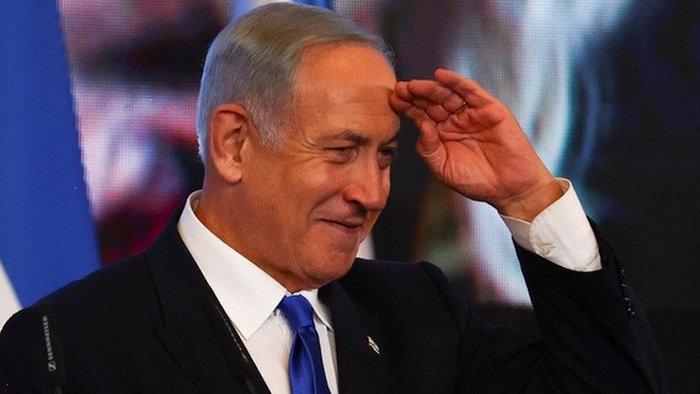Netanyahu focus of Israeli protests against 'the king'
- Published
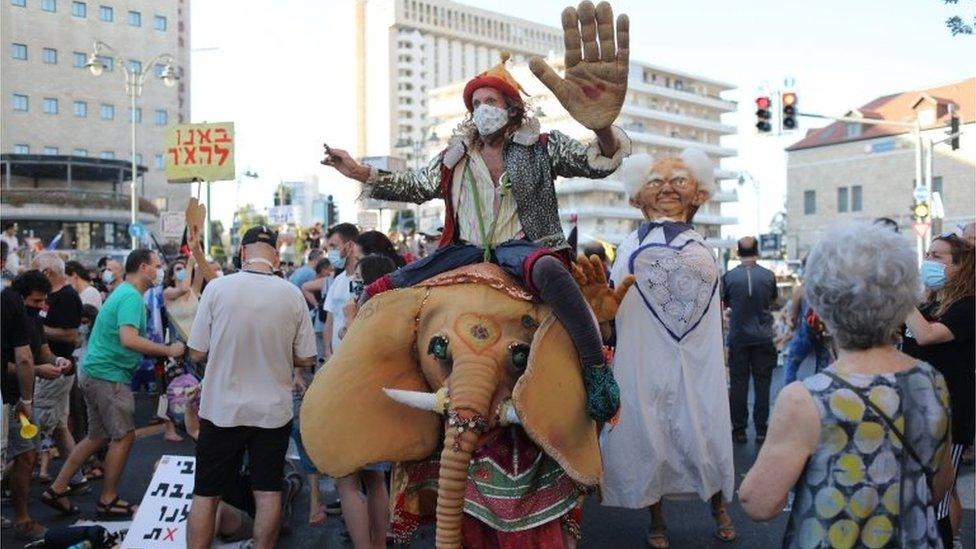
The carnival veneer of some protests belies growing anger at increasing hardships
Every weekend evening in the upscale district of Rehavia, crowds in their thousands gather around Balfour Street. Sometimes the atmosphere is carnival-like, with theatrical displays, free plastic trumpets and families milling around; other times it is tense, turning rowdy and ending with arrests.
The focal point is the official residence of Israel's prime minister and the repeated scenes are mass protests against him.
"I'm here because I'm sick of the way [PM] Benjamin Netanyahu treats the people and treats the country as if it's his own - as if he's the king and it's not a democracy," says one of the regular protesters, Adi Rosenthal.
She lives in Givatayim, east of Tel Aviv, but has been coming to Jerusalem twice a week for a month. Despite the coronavirus advice on social distancing, the pandemic has not prevented large gatherings.
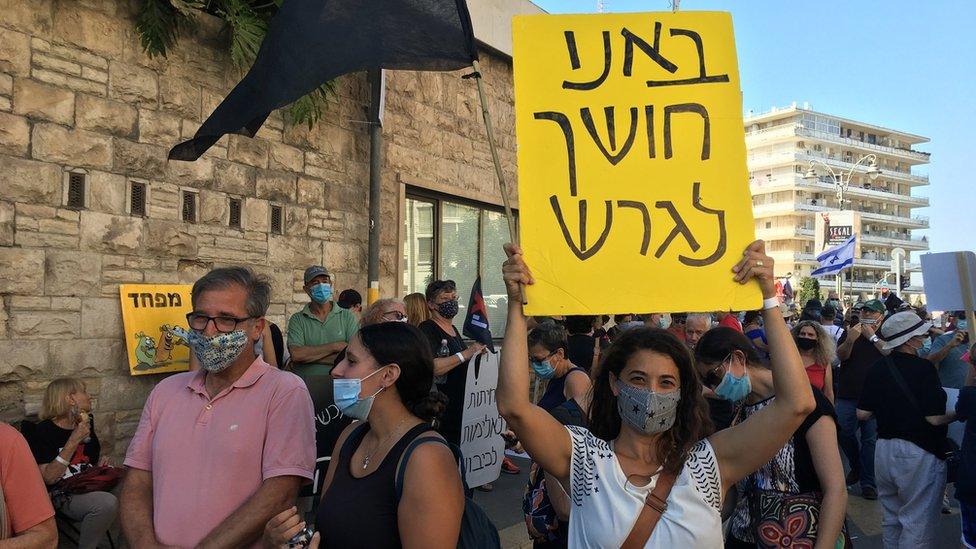
Adi Rosenthal with a sign which reads: We come to banish the darkness
The demonstrations are the biggest but they are not the first - one group, many with signs and masks saying "crime minister", have long camped out on the pavement. Other activists carrying black flags have also organised anti-Netanyahu rallies in recent months.
They argue Mr Netanyahu should not remain in office while on trial for corruption, a charge he denies.
Now they have been joined by a younger, more diverse crowd accusing the large unity government of mishandling the Covid-19 crisis and ignoring their suffering.
The rallies are the largest Israel has seen since 2011, when hundreds of thousands of people demonstrated across the country in protest at high living costs.
"The young people of Israel have nothing else to do but protest," says Shai, a jobless 27-year-old with two master's degrees.
"We can't buy a house, we can't even rent. They have destroyed the economy so we cannot go to work. We can't even afford to get married right now."
'We're united'
After acting quickly to contain the coronavirus in the spring many public health experts believe Israel reopened its economy too fast, leading to a new surge in cases.
It now has record high numbers of infections and unemployment has soared to over 20%.
"The government isn't taking responsibility. It doesn't give us economic support," says Yanal, an Israeli-Arab student from Umm al-Fahm.
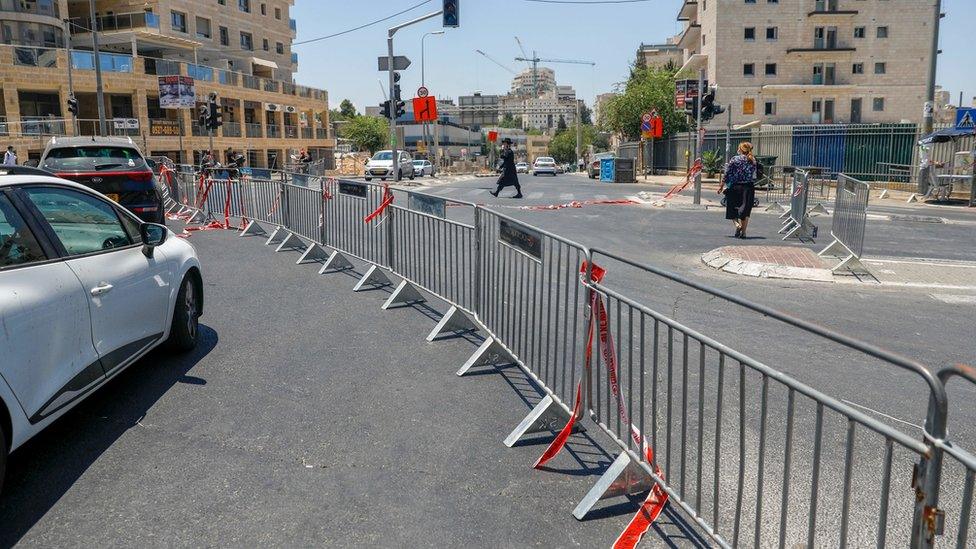
Many Israelis have accused the government of mishandling the coronavirus crisis
He lost his job in March and cannot afford his board and university fees but says he came to protest for many political reasons.
"We're united: Arab and Jew, against the occupation [of Palestinian territory], for democracy, peace and total equality," he says.
Some small business owners hit by the economic downturn are also joining the marches.
Erez Galit part-owns a smart restaurant in Jaffa flea market and has a production company for music events. Both are now closed leaving some 30 staff without incomes.
"It drives me crazy. You know the restaurants, the bars, the nightlife, the tourism - hundreds of thousands of people live off this work," Mr Galit tells me.
"We're good citizens, we paid our taxes, but now there are no clients and there's nothing coming back from the government. We're just left alone."
The prime minister's Likud party says: "Netanyahu is fighting to get Israel's economy back to normal and to transfer funds and grants to Israeli citizens."
'Anarchists and incubators'
Mr Netanyahu - who was sworn in for a fifth term in May after a close election - has claimed the protests are funded by leftist foundations and get disproportionate media coverage amounting to incitement.
He has called the demonstrators "anarchists" and "coronavirus incubators" while his son Yair described them as "aliens".
This month, a Jerusalem court ordered Yair Netanyahu to stop harassing three protest leaders after he published their addresses and mobile numbers on his Twitter account, urging his followers to demonstrate in front of their homes.
Protests have stretched to bridges and road junctions across the country and near the Netanyahus' private beach house in Caesaria. There are no signs they are slowing down.
A recent poll suggested that only 25% of Israelis approve of the way Mr Netanyahu has dealt with the pandemic, external.
Meanwhile, tensions within his governing coalition continue to mount, with talk in the press about the prospect of early elections - the fourth in a year and a half.
"My hopes are that the government won't last," says Nilly Mor, an academic in Jerusalem who has attended some 10 demonstrations - the latest with her young daughter.
"We don't look like anarchists, do we?" she says rhetorically. "We're highly educated. We read the newspapers and we see what's going on. Whatever happens I think these protests are going to have an impact."
- Published12 July 2020
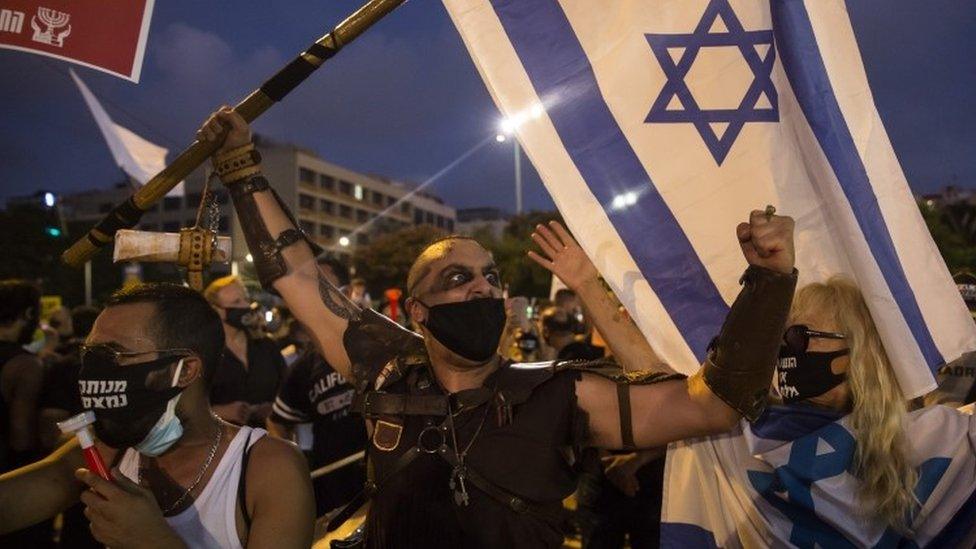
- Published25 June 2020
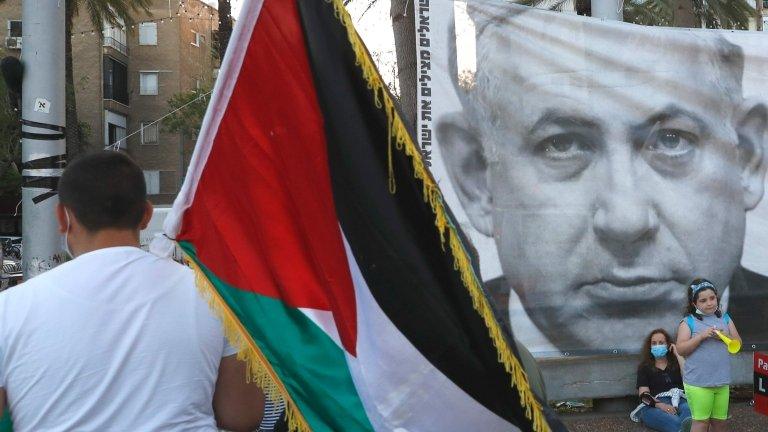
- Published24 May 2020
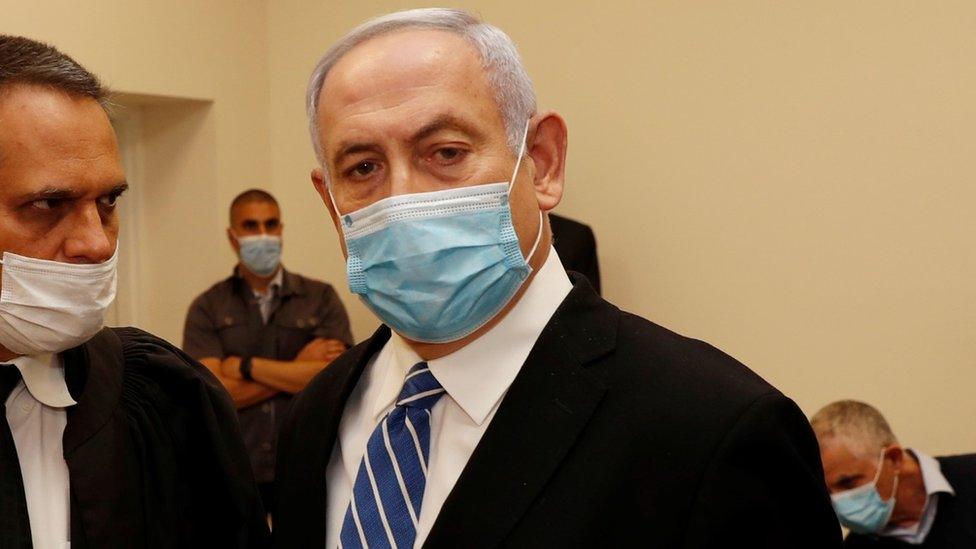
- Published21 November 2024
